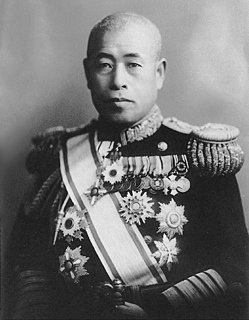A Quote by Nicholas Rodger
The common sense of the word (navy) as we use it today refers to a permanent fighting service made up of ships designed for war, manned by professionals and supported by an adminsistrative and technical infrastructure. A navy in this sense is only one possible method of making war at sea, and by some way the most difficult and the most recent. There have in the past been, and to some extent still are, many other ways of generating sea power.
Quote Topics
Any Other Way
Been
Common
Common Sense
Designed
Difficult
Extent
Fighting
Generating
In The Past
Infrastructure
Made
Making
Many
Method
Most
Navy
Only
Other
Past
Permanent
Possible
Power
Professionals
Recent
Sea
Sea Power
Sense
Service
Ships
Some
Still
Supported
Technical
Today
Up
Use
War
Way
Ways
Word
Related Quotes
It is not surprising that only one medieval state, Venice, long possessed anything clearly identifiavble as a navy in this sense. We shall see that no state in the British Isles attained attained this level of sophistication before the 16th century, and no history of the Royal Navy, in any exact sense of the words, could legitimately begin much before then. This book, which does, is not an institutional history of the Royal Navy, but a history of naval warfare as an aspect of national history. All and any methods of fighting at sea, or using the sea for warlike purposes, are its concern.
It's important to remember that World War II was experienced very much as a continuity in that sense. Most of World War II in most of Europe wasn't a war; it was an occupation. The war was at the beginning and the end, except in Germany and the Soviet Union, and even there really only at the end. So the rest of time it's an occupation, which in some ways was experienced as an extension of the interwar period. World War II was simply an extreme form, in a whole new key, of the disruption of normal life that began in 1914.
The Navy is a master plan designed by geniuses for execution by idiots. If you are not an idiot, but find yourself in the Navy, you can only operate well by pretending to be one. All the shortcuts and economies and common-sense changes that your native intelligence suggests to you are mistakes. Learn to quash them. Constantly ask yourself, "How would I do this if I were a fool?" Throttle down your mind to a crawl. Then you will never go wrong.
Consider the subtleness of the sea; how its most dreaded creatures glide under water, unapparent for the most part, and treacherously hidden beneath the loveliest tints of azure. Consider also the devilish brilliance and beauty of many of its most remorseless tribes, as the dainty embellished shape of many species of sharks. Consider, once more, the universal cannibalism of the sea; all whose creatures prey upon each other, carrying on eternal war since the world began.
The methods by which men have met and conquered trouble, or been slain by it, are the same in every age. Some have floated on the sea, and trouble carried them on its surface as the sea carries cork. Some have sunk at once to the bottom as foundering ships sink. Some have run away from their own thoughts. Some have coiled themselves up into a stoical indifference. Some have braved the trouble, and defied it. Some have carried it as a tree does a wound, until by new wood it can overgrow and cover the old gash.






























